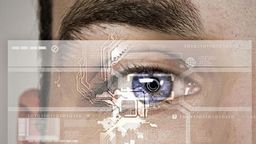Although the use of passwords to protect our accounts has long been the norm, it is becoming increasingly evident that this approach is insufficient and insecure, we refer to the data.
Hackers and cybercriminals are always coming up with new strategies to crack passwords (we make it easy for them too), putting people and businesses at risk.
However, if we replace passwords and use methods like two-factor authentication and biometric verificationwe could increase the security and protect against risk, while simplifying logins.
Big companies like Apple, Google and Microsoft have already realized this and have announced important advances to promote other options and replace passwords in favor of easier and more secure authentication.
Data from a 2023 PYMNTS study indicated that only 24.7% of people chose passwords as their preferred authentication system when accessing apps. However, 51.7% of respondents have used and preferred biometric authentication.
Passkey, biometrics, two-factor authentication…
The password they’re a process that began late last year: Google, for example, began supporting them on Android and Chrome in October, closely followed by PayPal. To give you a slight idea, a Passkey is a password encrypted and reinforced by a series of biometric data.
This is stored on your device, or in the cloud, but It only works when activated with a biometric element: your fingerprint or your face, for example. It is not necessary to write or memorize them, since they are based on the concept of cryptography.
The advantage of a Passkey over a traditional password is that it cannot be reused once used (it must be reactivated with biometrics), it has no value even if it is stolen, and it protects users from phishing attacks.
Additionally, biometric verification methods such as fingerprint scanning and facial recognition add an extra layer of protection because they cannot be cracked or stolen as easily as passwords.
On the other hand, two-factor authentication asks users to provide two pieces of information, such as a password and a code sent via text message to the phone, to confirm the identity. Even if they manage to steal a password, it will be much more difficult for hackers to access accounts with this authentication.
Can we really talk about security without passwords?
Passwordless logins may be safer than those that require itas they frequently use authentication methods that are more difficult for hackers to infiltrate.
In general, passwordless logins will offer a higher level of protection against attacks, even knowing that no security technique is 100% foolproof. We already know that if security systems evolve, cybercriminals will evolve with them.
In addition, systems and applications without passwords are often simpler and more comfortable for users, since they do not need to memorize complex passwords. Moving towards passwordless solutions is critical to ensuring the security and usability of online accounts.
After years of using strong passwords, Will we miss them when they’re gone? Probably not. Any move towards more security is always welcome and we don’t think it will be long before most accounts use one of the above systems.
















